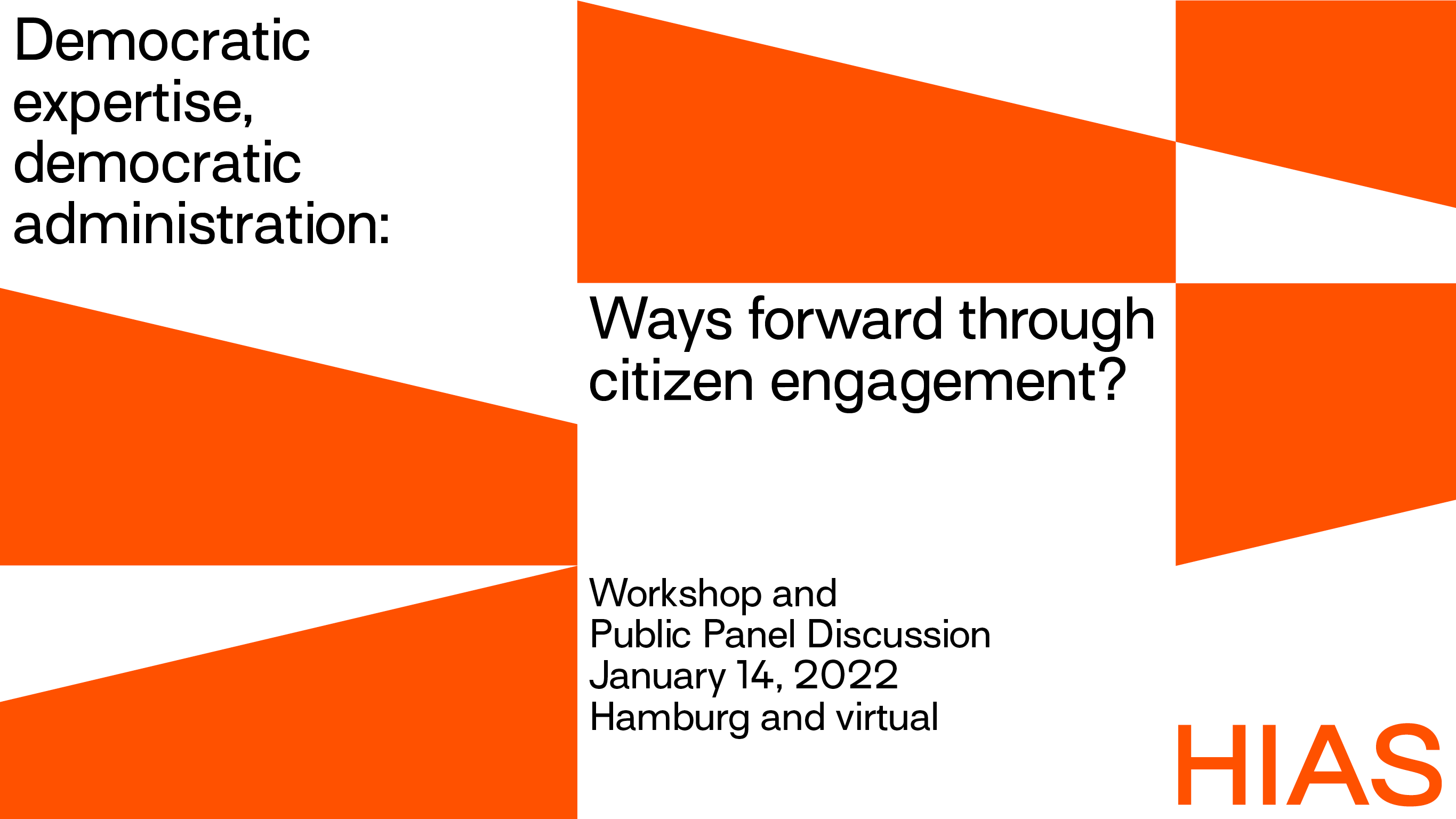There is a widespread perception, in many Western democracies, that the democratic system is not living up to its promises. Especially in times of crises, elected politicians seem to rely too much on non-democratic experts; public administrations are seen as irresponsive and lacking accountability to citizens. The world of university-educated experts and administrators seems to move further and further away from the everyday experiences of citizens. Among parts of the population – especially those who are socio-economically disadvantaged – there is widespread distrust of “elites”, which prepares the ground for populist political strategies. At the same time, it seems clear that complex modern democracies cannot do without the input from experts and without a professional administration. How can this dilemma be dissolved or addressed?
In this workshop Lisa Herzog and her guests want to discuss the current situation and existing proposals for improvement (and potentially develop new ones). Bringing together scholars from different countries allows us to take a comparative perspective. Moreover, we hope to fruitfully engage the different theoretical and empirical angles (in political philosophy, political theory, political science, public administration science etc.) that have engaged with such questions but are often themselves siloed off from each other.
Potential topics to be discussed include:
- Normative foundations and conceptions of the role of expertise in democracies
- Education and training of experts/administrators from a democratic perspective
- Incentives and career structures of experts/administrators and their relation to a democratic ethos
- Accountability and feedback structures between citizens and experts/administrators; for example, is “transparency” the way forward or is it a misguided ideal
- Formats of communication and interface management between citizens and experts/administrators (best practices), e.g. opportunities for co-production or power-sharing
- Implications for the organization of governments (vertical and horizontal openness and the avoidance of “silos”).
Internal Workshop
9.30 am – 4 p.m.
Participants:
- Prof. Dr. Albert Dzur, Distinguished Research Professor at Bowling Green State University
- Dr. Oliver Escobar, Senior Lecturer in Public Policy, University of Edinburgh, co-director of What Works Scottland
- Prof. Dr. Lisa Herzog, Professor of Political Philosophy, University of Groningen and HIAS Fellow
- Prof. Dr. Patrizia Nanz, Co-Director of the French-German Forum for the Future, Berlin and vice-president of the Bundesamt für die Sicherheit nuklearer Entsorgung
- Dr. Marc Pauly, assistant professor and head of the “Kenniscentrum Filosofie” of the University of Groningen
Public Panel Discussion
4.30 p.m. – 6 p.m.
Participants:
- Prof. Dr. Lisa Herzog, Professor of Political Philosophy, University of Groningen and HIAS Fellow
- Prof. Dr. Patrizia Nanz, Co-Director of the French-German Forum for the Future, Berlin and vice-president of the Bundesamt für die Sicherheit nuklearer Entsorgung
- Dr. Marc Pauly, assistant professor and head of the “Kenniscentrum Filosofie” of the University of Groningen
- Dr. Alexander von Vogel, State Secretary, Hamburg, Ministry of Science, Research, Equalities and Districts
The discussion will take place in German.

